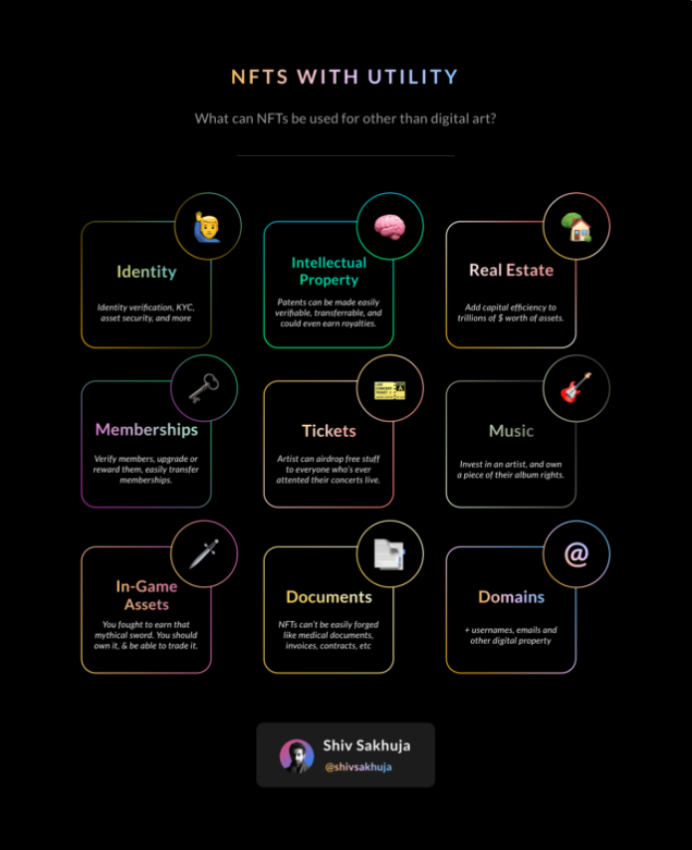
Blockchain: One of the most valid criticisms is that there is a centralized solution for everything already, so why do we need blockchain solutions? Kurt Ivy explains why blockchain tech will always be superior.
Many intelligent, well-intentioned individuals accept the fact that crypto and blockchain work as intended – but there’s just one problem:
For every blockchain solution, isn’t there a centralized solution that does it better? This seems to be the fundamental question. Tear away all of the hype, ideals, and details, and you’re left with this. Do we really need it?
I have to admit, this stumped me during several conversations. But that’s only because I wasn’t prepared to give the obvious answer we have explained thousands of times in a thousand different ways.
TL;DR: The blockchain solves the problem of digital ownership.
Plain and simple. Here’s a little more: the blockchain addresses the issue of centralized control. Who has custody over information/the flow of information? Do they handle the responsibility correctly? Do they make a massive profit simply because they’re in control of something uncomplicated that anyone else could do just as easily?
With blockchain technology, NOBODY controls information. Access to information becomes a public utility, and access to information defines how the internet works on a fundamental level. It’s everything.
Let’s make this clear:
The internet and the systems built within it have become what roads, powerlines, and plumbing are in real life.
Payment solutions, banking, and commerce – these are PUBLIC UTILITIES. They are a necessity, not a luxury.
So you see… It does not matter if centralized entities are more efficient solutions in certain aspects. That’s because those centralized entities are abusing their position and milking the systems that society requires to function properly. If we could trust individuals to do what’s best for the country when they have absolutely zero incentive and accountability to do so, then companies like Amazon and Uber would be great. Clearly, our trust was misplaced, and we are trading a few comforts for wealth and autonomy. This is proving to be disastrous to the future of our society.
Those centralized solutions aren’t more effective. They appear to provide something great on the surface. Beneath the surface, they’re slowly sucking countries dry.
NFTs
Let’s dig into some details. The NFT page on the Ethereum website has a really great, simple infographic to explain the benefits of NFTs:
The second point here is another quick summary of my explanation. Ownership of digital records – accounts, memberships, inventories – are stored on servers controlled by institutions. We have to trust them with this information. For example, Amazon has massive control over e-commerce simply because they hold custody of the digital items – inventories – and control how they are displayed. They take a cut of the profits on both sides of a transaction to reward themselves handsomely for being the middleman.
Shiv Sakhuja posted a great article about the utility of NFTs. I want to address some of his points through the lens of centralized vs decentralized custody of information.

But First, E-Commerce
This isn’t one of his examples, but the role of blockchain technology in retail and e-commerce cannot be overstated. First, let’s examine the most basic building blocks of e-commerce:
Seller uploads data to websiteBuyer views data
Now, who is going to hold and manage all of that data? If we allow a central institution to manage the data, they will certainly abuse their position of power and put a strain on e-commerce activities.
Instead, we can use the blockchain to facilitate data storage and monetary transactions. No one owns the blockchain, and yet it is cost-effective and secure. An e-commerce platform built on the blockchain would provide any utilities that a centralized institution could provide, but there would be no fees and no censorship. No stealing of products.
eNFTs — A Solution With a Known Problem
So you see, all we need is someone, or something, to entrust our data to. The blockchain offers this solution. Instead of uploading product data to a website, it can be uploaded as an NFT, or a SHOPX e-commerce NFT (eNFT) to be exact. With this, centralized entities will no longer control product data, and, as a result, will not control e-commerce.
The blockchain doesn’t ask for profits. It doesn’t ask for fees (aside from small alms to keep the system online). Applications built on the blockchain are accessible to anyone at any time. This is the foundation of a true free market. A digital space where people can buy and sell, just like they would in real life, without a third-party meddling in their business and taking a cut.
Another great utility that eNFTs bring to e-commerce that centralized solutions cannot (or will not) is interoperability. Currently, each e-commerce platform has its own infrastructure to maintain and distribute retail data. This data is not transferable from one platform to another. To transfer inventory, each piece of information must be re-entered, bit by bit.
eNFTs offer a solution to this problem. Once the product data is uploaded as an eNFT, it can be used on any compatible e-commerce platform. Data entry becomes a one-time event. This also standardizes data across all platforms.
Tickets, Music, and Video Games
These are the low-hanging fruits of what NFT technology has access to. To address all three in the context of digital ownership, it is clear what the problem is: centralized institutions act as middlemen for all three.
What are the core concepts here? Tickets are something that venues sell to participants. Music is something that artists sell to fans. Games are something that creators sell to gamers (this one is a little more complicated, hang tight). If we could cut out the middleman on all three (ticket distributors, labels, and studios), then we could focus the profits and attention on what really matters. The content.

Blockchain and Tickets
Ticketing isn’t a terribly run industry, but there are still massive profits to be made by standing in the way of artists/venues and fans. There are other benefits of using NFTs that centralized entities can’t provide. Secondary market control is a big perk here. You may think that this is in fact a bad thing. Why would we want increased control instead of more freedom? Well, ticketing is a very special case.
Concerning the secondary market, neither venues nor buyers want overpriced tickets, fake tickets, transferring tickets without payment/payment without getting the ticket, or overly complicated transfers. NFT tickets can be transferred safely and securely without worrying if the other side will pay or if they are giving you a fake ticket. And the price can be locked in, unable to increase.
Blockchain and Music
There are endless problems with labels having full control over artists. Artists become the tools of the label rather than a tool the artist uses to distribute their music. This degrades the quality of the music as well. Recently there was a story about an artist whose label would not produce her music unless she created a viral Tik Tok video. The same artist’s talents were used to help a different artist produce better quality songs.
What happens is a money-making machine is created. This machine has one goal: to pump out money-making songs. The artists and the art become secondary to the sales. Music NFTs like Yellowheart put control of the rights to the music in the hands of the artist. If and when music NFTs take off, artists will no longer need to rely on labels to safeguard and distribute their information. The information storage system – the NFT – isn’t owned by any individual or institution. As long as the artist is able to promote themselves, they will be able to keep all of their earnings.
Blockchain and Video Games
Studios technically aren’t the middlemen between the creators and the gamers. Studios are the creators. But in recent years, studios have become profit-seeking entities, and the creators within the studios become their tools. When smartphones made apps highly accessible and iPhone games took off, many studios turned their attention to pay-to-play games with microtransactions because that’s what is the most profitable model right now. Small, cheap games that would normally cost a dollar can slowly rack up tens or sometimes hundreds of dollars.
This, combined with other in-game purchases like skins and items, are pure profit for studios. Some studios release free games, which depend on in-game purchases from those willing to spend the money. Why not give those players ownership of their purchases and the ability to resell them? This would incentivize the creation of high-quality collectibles instead of cheap boosts that can’t be resold. The studio will make a profit from royalties on resales, and the players will make a profit for their hard work.

No, The Blockchain Isn’t a Solution Looking For a Problem
To summarize, the blockchain is the only technology that can securely and effectively store proof of digital ownership. The ability to lay claim over digital information was impossible before unless you owned the infrastructure that stored the information. The blockchain provides an infrastructure to store information that no one owns and anyone can access. This utility is absolutely necessary for society and will have an enormous, rippling effect on many different industries, and as a result, our entire society.
About the author

Kurt Ivy is a content writer for SHOPX and Gamerse, marketing advisor for Altar, head of content at Crypto PR Labs, and CEO of Coffee Nova. Ivy is a philosopher, futurist, writer, and entrepreneur.
Got something to say about blockchain tech or anything else? Write to us or join the discussion in our Telegram channel. You can also catch us on Tik Tok, Facebook, or Twitter.
Disclaimer
All the information contained on our website is published in good faith and for general information purposes only. Any action the reader takes upon the information found on our website is strictly at their own risk.






Be the first to comment